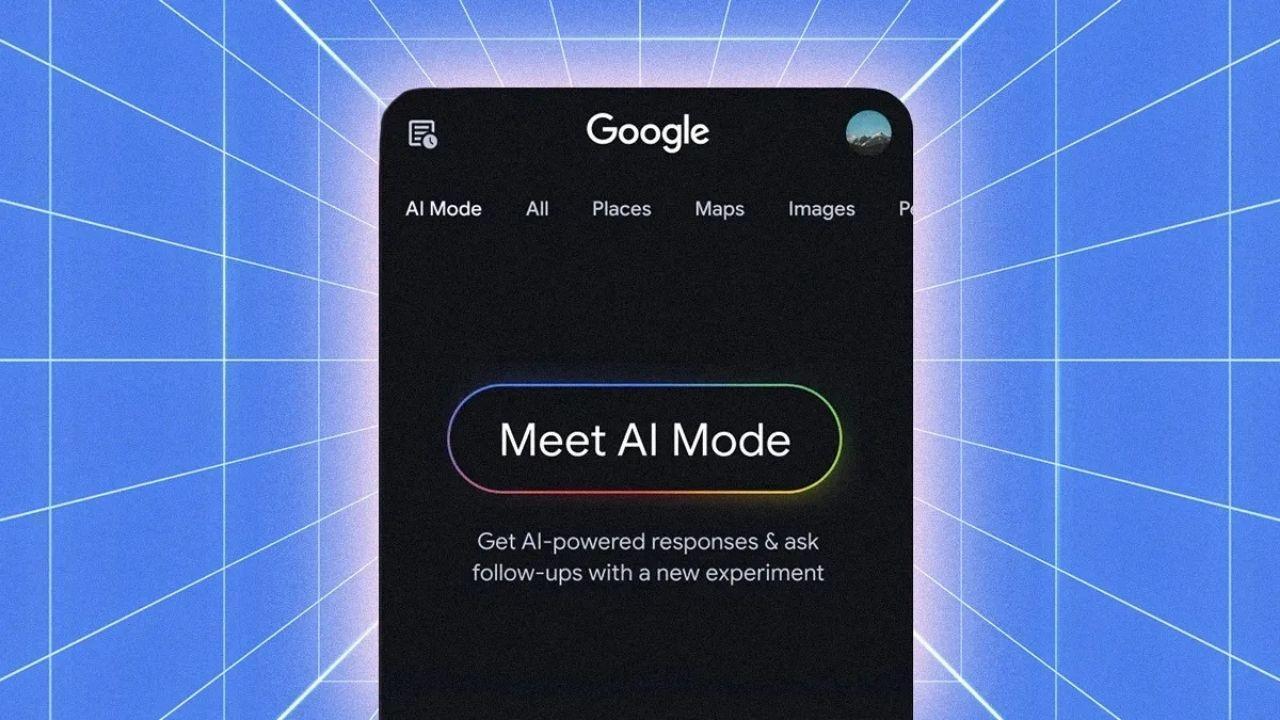You have not yet added any article to your bookmarks!

Join 10k+ people to get notified about new posts, news and tips.
Do not worry we don't spam!

Post by : Anis Farhan
For years search meant typing keywords and scanning results pages. In India, Google’s AI Mode is redefining that pattern: it accepts conversational, multimodal inputs and answers with concise, context-aware summaries rather than a list of links.
For everyday users this makes search feel more interactive and personalised. At the same time, content teams, marketers and publishers must rethink how information is discovered and monetised. Grasping how AI Mode operates and what it implies is now essential for all participants in the digital ecosystem.
AI Mode supports typed text, spoken queries and images. A user might snap a photo of a device and ask about a fault; the system combines visual recognition with language understanding to produce a relevant response.
The feature can parse layered or multi-part questions and follow conversational turns. It separates components of a query, processes them together, and returns integrated answers that feel natural and efficient.
Rather than relying solely on static indexes, AI Mode incorporates up-to-date information and local context when available. This helps ensure responses reflect current facts, trends and regional specifics.
After initial trials with a limited user base, AI Mode is being rolled out more broadly with a streamlined interface. It accommodates multiple input styles and aims to support additional Indian languages to meet the country’s linguistic diversity.
AI Mode shortens the path to useful information. Instead of navigating multiple pages, users receive succinct, actionable guidance that saves time.
Voice and image queries make the system more usable for people who find typing difficult or prefer other interaction modes. Regional language support further lowers barriers to access.
From planning travel and decoding regulations to diagnosing plant ailments or troubleshooting appliances, AI Mode can assist with a wide range of everyday tasks.
As users grow accustomed to direct, outcome-focused answers, they will expect solutions rather than a set of links—shifting how queries are asked and how content is framed.
Shifts in Visibility: If AI Mode extracts and condenses answers, fewer users may visit source pages, with potential traffic consequences.
Importance of Content Format: Clear, structured and problem-solving content is more likely to be surfaced by AI-driven results.
Maintaining Trust: Publishers will need to prioritise accuracy and authority to be reliably referenced by AI systems.
Adapting SEO Strategies: SEO must evolve to accommodate conversational language and multimodal queries, not just keywords.
Brand Presence in AI Answers: Companies should plan how their offerings are represented within AI-generated recommendations.
Optimizing for Voice and Visual Search: Ensuring websites and assets are friendly to voice and image queries will become increasingly important.
Improved Convenience: Search becomes more intuitive and task-oriented, improving the overall experience.
Reduced Click-Through: Direct answers may reduce visits to original pages, raising verification and trust questions.
Data Awareness: Richer inputs like voice and images increase the amount of personal data processed, so users should be mindful of privacy trade-offs.
Language Inclusivity: Extending support to regional languages can narrow the digital divide and boost adoption across diverse communities.
Ensuring Access: Reliable connectivity and devices remain critical for rural or underserved areas to benefit fully.
Evolving Content Economy: With fewer referral clicks, publishers may need fresh monetisation models to sustain journalism and online content.
AI Mode can make mistakes or reflect biases. Users should corroborate important facts, and creators must focus on producing trustworthy material that AI systems can rely on.
Fewer click-throughs may reduce ad revenue and referral traffic, prompting publishers to explore alternative income streams.
Processing images and voice involves sensitive data. Understanding how those inputs are handled is important for user privacy and consent.
Capturing regional dialects and cultural context remains difficult, and errors in interpretation could limit effectiveness in some settings.
The rise of AI-powered summaries may force both search platforms and publishers to reassess monetisation while keeping a balanced digital ecosystem.
People will increasingly pose complex, multi-step questions in natural language and expect integrated, practical responses from search.
Text, voice, images and video may all become regular inputs, enabling users to interact with search in more intuitive, context-aware ways.
Outcomes will tilt toward checklists, recommendations and step-by-step guidance rather than simple link lists, helping users act on information quickly.
Search could evolve into a problem-solving assistant embedded in everyday routines, especially across multilingual and multi-device environments.
Google’s AI Mode launch in India points to a major shift in how people find and use information. Users stand to gain faster, richer and more conversational results, while publishers and businesses face new challenges in visibility, SEO and monetisation.
Moving from a model of “type and click” to one of “ask, show and act” will require adaptation: clearer content, smarter strategies and an emphasis on trustworthy information.
This article is for informational purposes only and does not constitute professional advice. Readers should verify product features, policies and privacy practices with providers before making decisions.










Study Warns Using AI for Medical Advice Is ‘Dangerous’ as Users Get Inaccurate Health Guidance
A major new study reveals that artificial intelligence (AI) chatbots and tools may give misleading o

Top Sci-Fi Movies Streaming on Netflix This February: Must-Watch Picks for Genre Fans
A curated news-style guide to the best science fiction films currently available on Netflix in Febru

BCCI Central Contracts Shake-Up: Kohli, Rohit Moved to Grade B as Board Reshapes 2025–26 List
Virat Kohli and Rohit Sharma have been placed in Grade B in the BCCI’s 2025–26 central contract list

Dalal Street Spotlight: Top 10 Stocks Investors Are Watching as Markets Open on a High
Indian stock markets begin the week with strong momentum, and several blue-chip and mid-cap stocks a

Market Movers Today: Key Stocks Set To Watch In Indian Markets
Indian equity markets are poised for active trading as several major companies, including Bharti Air

Milan Welcomes the World: Inside the Grand Opening Ceremony of the 2026 Winter Olympics
The 2026 Winter Olympics opening ceremony in Milan marked a defining moment for global sport, blendi